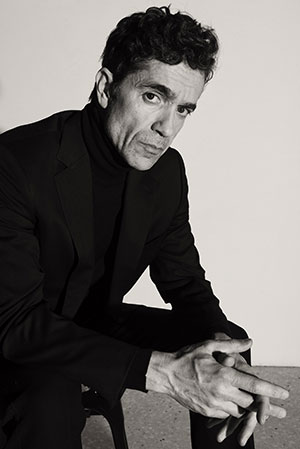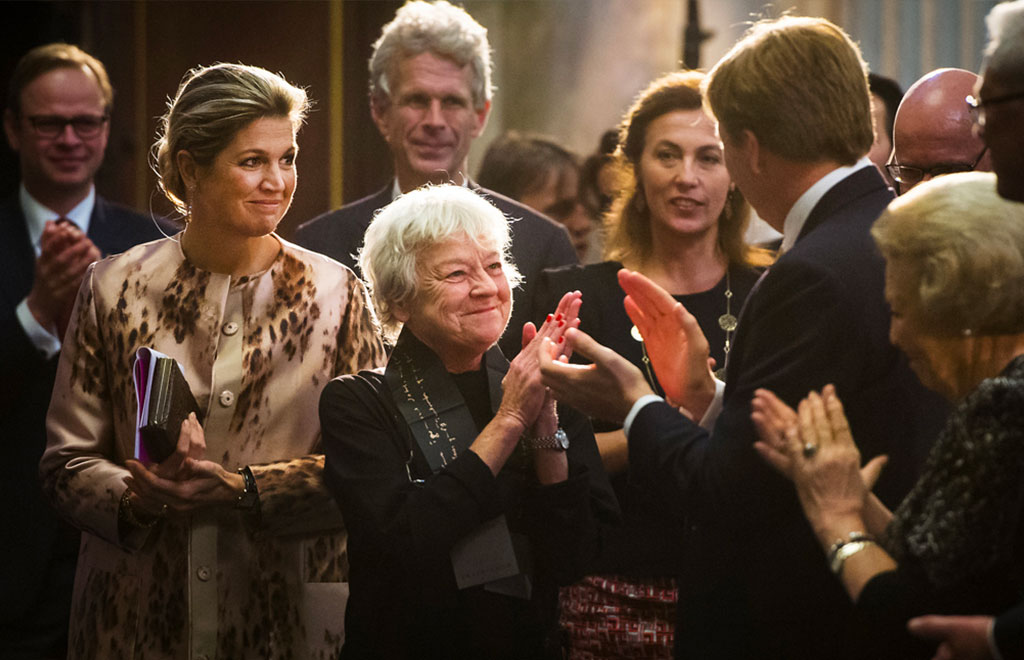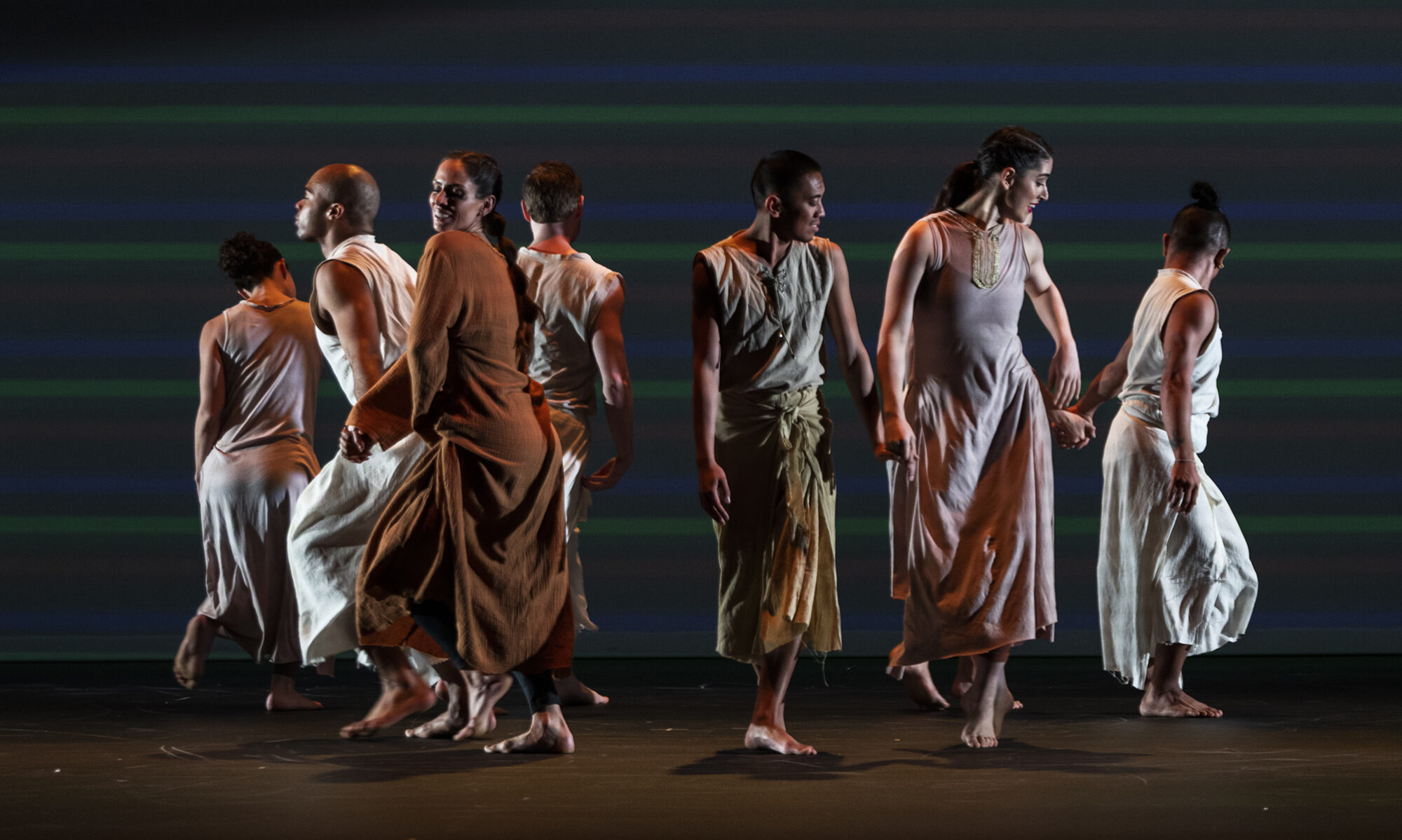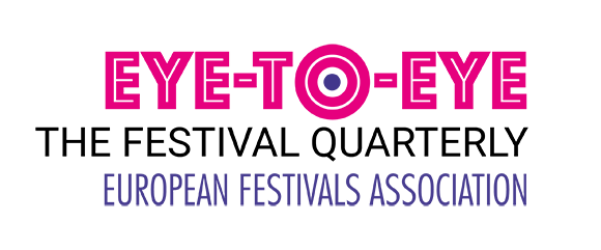Laudation for Frie Leysen
EFFE Lifetime Achievement Award 2019-2020

Director and stage, lighting and costume designer Romeo Castellucci (Cesena, Italy, 1960) is known throughout the world for creating a theatre founded on the totality of the arts and aimed at an integral perception. He has also written various theoretical essays on directing. His theatre engages in a type of dramaturgy that overturns the primacy of literature, thus becoming a complex and supple form of art, a theatre made of extraordinarily rich images expressed in a language as comprehensible as music, sculpture, painting or architecture. The Socìetas Raffaello Sanzio, now Societas, the theatre company he created in 1981, is internationally recognized as one of today’s most important Companies for its radical aesthetic stance and the profoundly human nature of its creations. His stagings are regularly invited to and produced by the most prestigious international theatres, opera houses and festivals, in over fifty countries covering all the continents.
Frie, with the Kunstenfestivaldesarts – one of your remarkable inventions – you have given audiences the opportunity to think, to reflect about the act of seeing, to see the act of seeing itself, to become deeply aware of what it means to be a spectator of the complexity of the images of our time. You have conducted your research without any rhetorical certainty, cultural shelter or literary support, because the research itself knew that true forms transcend their own rationale. You have promoted an idea of theatre of absolute necessity, oriented towards a never accommodated beauty, speaking not to illustrate, but to embrace the heights and depths of human experience. Facing the contemporary negligence of the gaze, at that time your Kunstenfestivaldesarts showed to the audience the artificial ruins, conceived by artists as symptoms of our societies. You have made theatre an art worthy of being seen, criticized, and eventually loved. You probably underestimate your role – I know you well – but you should know that your work has been a constant source of inspiration for several generations of artists.
Now, if the auditorium allows, I would like to read some excerpts of a long letter I sent you, Frie, in January 1999, the day after your visit to Cesena, my city. It is a small evidence of our artistic friendship. At the time artists, critics and curators debated endlessly. They discussed extensively about theories. And, with you, I remember long discussions on the ethics of aesthetics and on our mutual commitment to get out of the predefined and condescending frameworks of theatre.
The letter followed a passionate discussion we had at Gianni’s – a restaurant that no longer exists today – about the aptness of my work with – so to say – non-professional actors, people wounded by life, coming from the streets and from other worlds. Indeed, sometimes the translation of reality into theatre raised questions and problems: was it ethical? What is ethical? What is aesthetics? What is the connection between ethics and aesthetics? We were talking about aesthetics, not doctrinaire aestheticism. The questions were as follows: can – even incorrect or unpleasant – aesthetics raise urgent ethical questions? Can aesthetics provoke a pang of the heart? Can it change people? Our questions stemmed from an unspoken assessment: the path of creation is never taken alone. I knew I needed you. We had specular vocations which responded to the names of Ethics and Aesthetics.
Cesena, January 1999
Dear Frie, my inspiration,
I am writing you about the conversation we started at Gianni’s on the relationship between ethics and aesthetics. I can add few more elements, which could perhaps clarify – at least a little bit – what I was trying to tell you in a confusing way, or perhaps, who knows, confuse it further. In theatre, in the arts, it is extremely hard to give yourself an ethical task if “ethical” means, as it does mean, awareness of what is right, moral, adult and socially correct for the citizen community. (…)
The artist’s task is to compose an aesthetically problematic image. The spectator’s task is to “look”, and only this verb calls upon spectators to make moral choices that question them personally. [Reality is the result in which we see reality ?] and theatre is the distorted exposure of its reflection. Deformation is the aesthetic act that reconfigures the gaze. The real political subject is the act of looking and not the so-called “current events”. The gaze is political, and it is up to aesthetics to produce the ethics of the gaze. (…)
Beauty is not fair. It has no arguments or theories. It is consubstantial with its “error”. The theatre we respect is the “wrong” place, the place of Error, the place of the lie-who-teaches, which is able to reconfigure the gaze by bending it under the weight of a form. Dear Frie, when words are not enough, when they fail, only aesthetics can transcend that failure, in front of the sphinx of life. (…)
Your precious work, dear Frie, is extremely ethical and this generates eventually an aesthetic sign in the city. It’s clear! Your work is, in a word, complementary to the work of those who do theatre. The aesthetics in a show is pointless without the ethics of an artistic director who chooses a performance, who solicits it, who places it in time and space, who makes it possible with the necessary care. In the end, someone who thinks the show in the city.
Yours sincerely, Romeo.
Say hello to Berth.

Frie Leysen’s Acceptance Speech – Erasmus Prize 2014
This page presents Frie Leysen’s acceptance speech after receiving the Erasmus Prize 2014 from the hands of His Majesty the King of the Netherlands for her contribution to the theme ‘Theatre, audience and society’. We want to honour our beloved Frie by publishing one of her text that we find very powerful but also very actual in her analysis of the situation of the arts.
EFFE Awards Salon 2019

